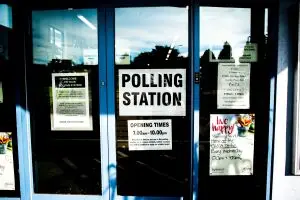JACOBS WINS FUSION CONTRACTS
It has been announced that Jacobs, a Dallas headquartered energy consulting, engineering and construction services firm, has been awarded several contracts with an estimated combined value of $25 million. The contracts were awarded by Fusion for Energy (F4E), the ITER Organization and the United Kingdom Atomic Energy Authority (UKAEA) in order to support leading-edge research in fusion energy.
(Nuclear Industry Association, Jacobs delivering technological innovation for fusion, 15 April 2020, Link)
EDF WITHDRAWS FINANCIAL TARGETS DUE TO COVID-19
The economic disruption caused by the COVID-19 pandemic has prompted EDF to reassess its financial targets for 2020 and 2021. A statement by the French transmission system operator, RTE, stated that electricity demand in the country has dropped between 15 per cent and 20 per cent since the beginning of the lockdown. This drop in demand is impacting the EDF group’s businesses especially nuclear generation, new build projects and services.
(World Nuclear News, EDF pulls financial targets in response to pandemic, 15 April 2020, Link)
NNL SIGNS AGREEMENT WITH IAEA TO ENHANCE COOPERATION
On 9 April 2020, it was announced that the UK’s National Nuclear Laboratory (NNL) and the International Atomic Energy Agency (IAEA) had signed a ‘Practical Arrangement’ designed to enhance cooperation between the two organisations. The cooperation will be used to: increase the efficiency of nuclear power plants’ operation, improve stakeholder involvement, encourage innovation for nuclear power reactor designs, advance nuclear technologies, and improve decommissioning and radioactive waste management. Both organisations will work together to support nuclear energy in delivering a sustainable future.
(National Nuclear Laboratory, NNL Signs Important Collaboration Agreement with IAEA, 9 April 2020, Link)
HARTLEPOOL POWER STATION RESTARTS
Following a brief shutdown for planned maintenance, EDF Energy’s Hartlepool power station has resumed operation. The restart will ensure the UK is supplied with safe, secure, low-carbon electricity throughout the COVID-19 crisis. The power station is now generating enough power for approximately two million homes and EDF is working closely with National Grid to ensure that sufficient electricity is generated to power the country.
(EDF, Hartlepool power station is powering the nation after safely completing planned maintenance work, 16 April 2020, Link)
EDF SUPPORTS COMMUNITIES THROUGH COVID-19
As part of the national effort to fight COVID-19, EDF has partnered with Avicenna and Boots Pharmacy Delivery and Collection (PDC) to deliver medical supplies to those in need. EDF employees have volunteered to collect and deliver essential supplies for patients who are self-isolating. Philippe Commaret, Managing Director for Customers at EDF, stated:
‘These are challenging times, and we’re committed to doing all we can to support our customers and the wider public.’
(EDF, EDF launches Covid-19 volunteering for independent pharmacies through partnership with Avicenna, 16 April 2020, Link)




